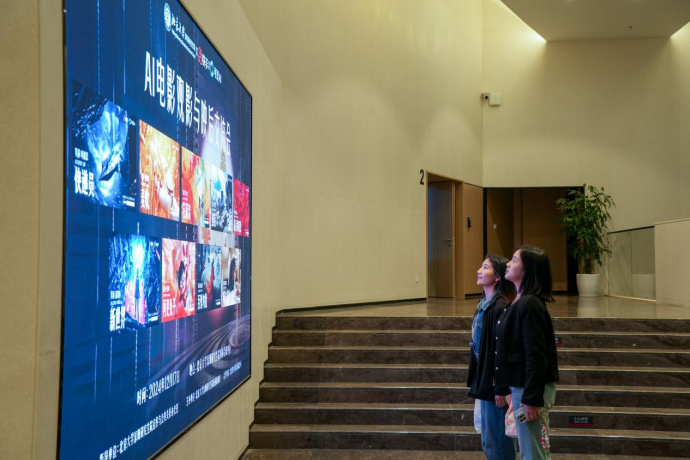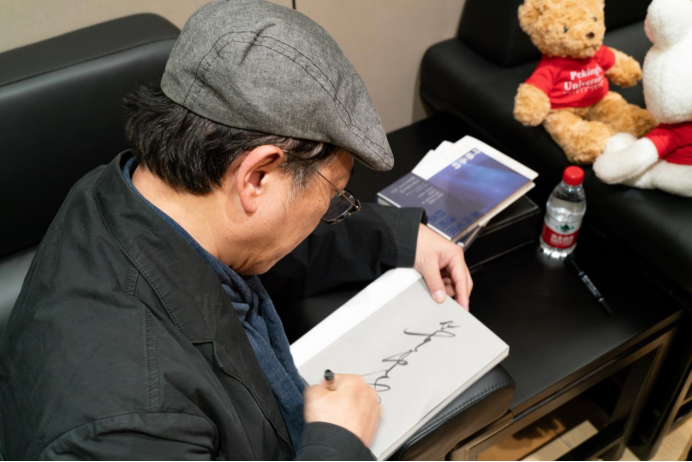Artificial intelligence has become the “right-hand man” for directors, blending classic art with cutting-edge technology. In the uncharted realm of limitless creativity, AI is redefining the language of film.
On the evening of December 17, 2024, the "AI Movie Viewing and Post-Screening Exchange Meeting" was held under the guidance of the Communications and Public Relations Office of Peking University Shenzhen Graduate School. The event was hosted by Nanyan News Agency and collaborated with Beijing Kuaishou Technology Co., Ltd. Over 200 teachers and students from the Shenzhen University Town participated. The exchange meeting featured a special guest: Timmy Yip, the internationally renowned art director, costume designer, and visual artist, and the winner of the 73rd Academy Award for Best Art Director.
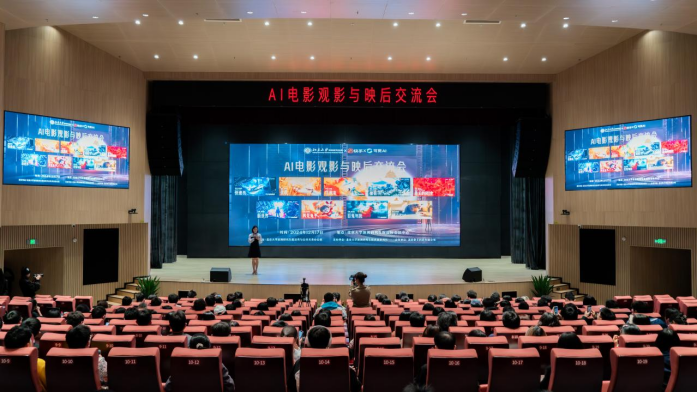
Event site
Film screening
The event began with a screening of short films created by nine directors, including Timmy Yip and Changjiang Yu, using "KeLing AI" technology to bring futuristic cities and surreal landscapes to life. These films showcased how AI transcends the boundaries of time and space, creating a seamless fusion of reality and fantasy.
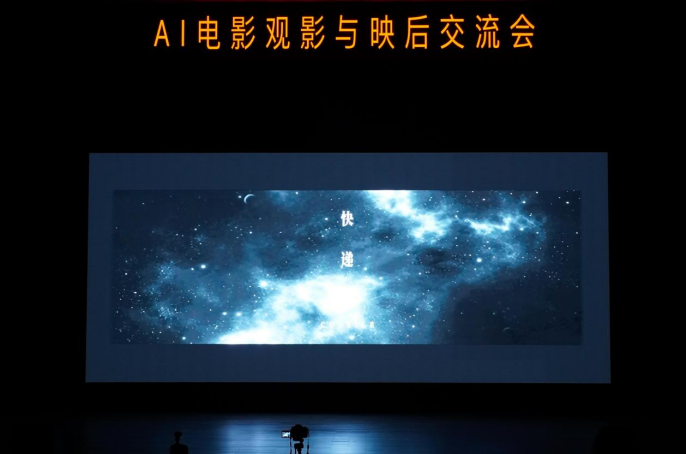
Screenshot from the short film The Courier
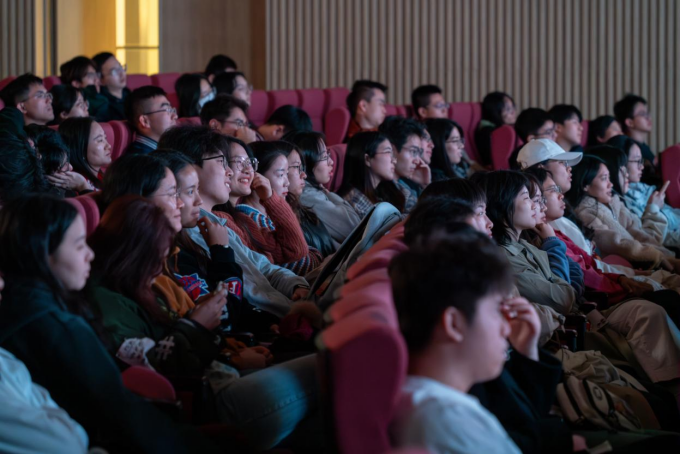
Audience watching the film
The directors shared their experiences in film creation and discussed their perspectives on the role of AI in the future of filmmaking.
Conversation with Timmy Yip and Changjiang Yu
After the screening, Timmy Yip engaged in an insightful conversation with Changjiang Yu about the present and future of AI in film creation.
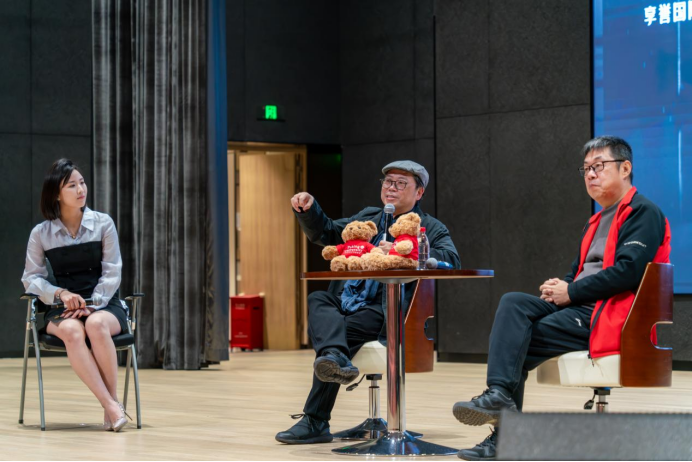
Conversation with Timmy Yip and Changjiang Yu
Timmy Yip reflected on his creative process while working with "KeLing AI," highlighting its transformative impact in providing both visual effects and creative inspiration. He emphasized that AI significantly accelerates the process of generating virtual scenes and characters. Furthermore, AI opens up new artistic possibilities in visual effects, enabling what would be difficult to achieve using traditional methods in a short time. With AI, directors have greater freedom to bring their creative visions to life, unlocking a new era of filmmaking.
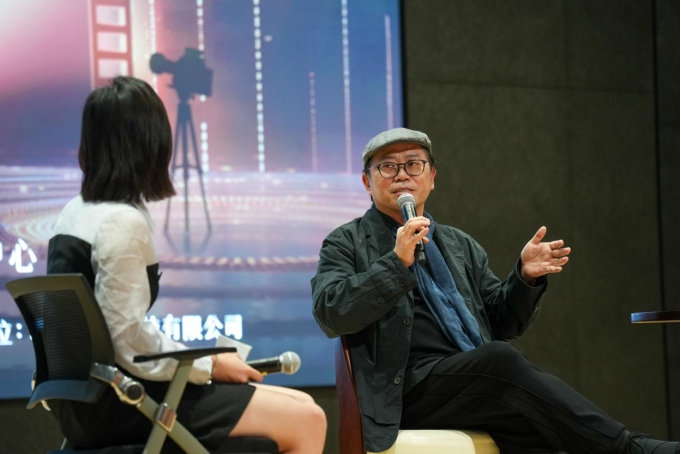
Timmy Yip
Meanwhile, Ye acknowledged that the creativity AI brings is grounded in training data and established rules, with its output often constrained by algorithms. In response, Yu noted that the visual aesthetics of traditional films typically reflect the personal style of the director. The introduction of AI, however, may disrupt this personalized approach, shifting the creative process from being "human-centered" to "technology-driven."
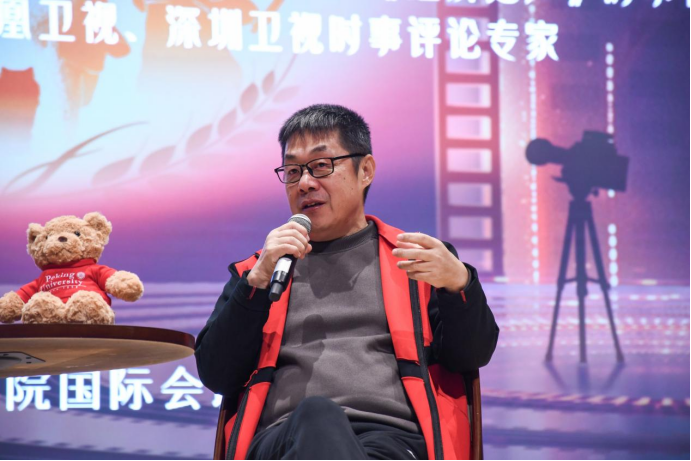
Changjiang Yu
When discussing the future of the film industry, Yip expressed that the continued development of AI applications will serve as a powerful catalyst for novel artistic creations. AI enables filmmakers to explore greater flexibility and diversity in the forms films can take. Yu added that the integration of AI in filmmaking will not only transform social culture but also reshape the industry’s structure, the labor market, and how audiences experience films. By lowering the barriers to creation, AI encourages individual creators to bring their visions to life.
The floor was then opened for an engaging Q&A session, where the audience asked intriguing questions on topics ranging from AI-related copyright issues to the aesthetics of film production. Following the session, Kuaishou presented souvenirs to the audience as a token of appreciation.
Q&A Section
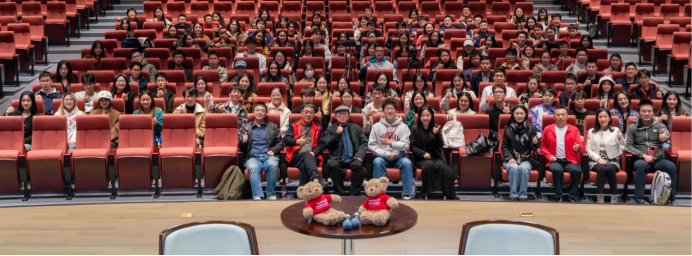
Group Photo
AI-driven films are not only expanding the possibilities for cultural expression but also opening up new dimensions for film art. As AI tools continue to evolve, they will unlock fresh perspectives and creative ideas, driving transformative change in the film industry and further enhancing its development.
More Highlights:
